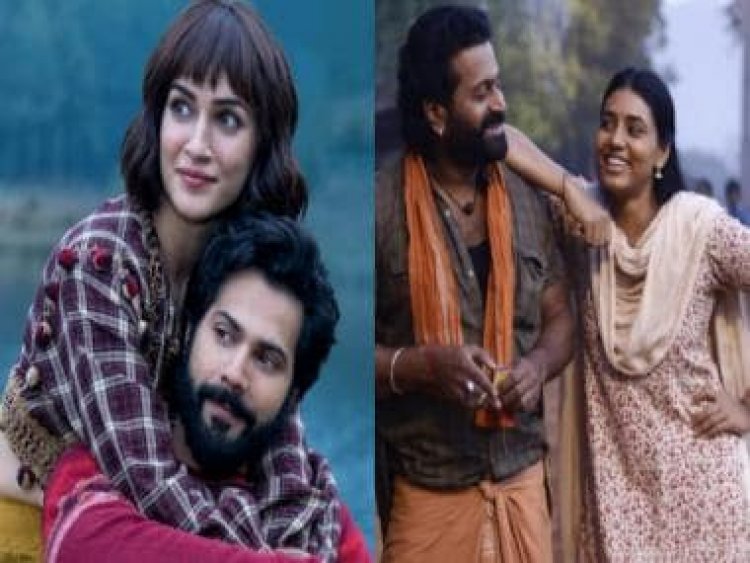Why are we over-praising Kantara & Bhediya?
Why are we over-praising Kantara & Bhediya?

While successful films are always welcome because as the dear man Manmohan Desai used to say, you can’t argue with success, it is becoming a bit tiresome, not to mention self-defeating, to hear all the praise being showered on recent films whose prime virtue seems to be their affinity to tribalism and primitivism.
Rishab Shetty, unknown outside Karnataka, suddenly acquired pan-India superstardom with just one film Kantara. No doubt much of the recognition that has come to Shetty is deserving.
Kantara is certainly a praiseworthy film for its meticulous recreation of an ancient dance form which is performed in coastal Karnataka to summon the gods. Rishab Shetty went to tremendous pains to bring alive each detail of the dance, from the blood-curdling screams (the kind of screams you feel like letting out after seeing most recent films but don’t know to) to the frenetic dance movements.
The entire film is encapsulated in the last 20-25 minutes. The rest of the film is about a bunch of rowdies who think deforestation is not to be taken seriously until Nature strikes back with a roar that can frighten a boar, certainly not to be taken lightly.
There is a long boar chase in the new Malayalam film Kumari. This hark-back to ancient traditions and myths for cinematic stories is symptomatic of the aridity that has hit Indian cinema, particularly Bollywood. The more the absence of excellence on the surface, the more filmmakers will excavate into ancient folklore and mythology to come up with chilling screams of originality.
Of course, no one is going to question the intrinsic merits, the cinematic qualities of these films. No one spoke of the cinematography editing and direction of Jai Santoshi Maa. No one is saying a word about the shoddy characterizations in Kantara, it’s thinly veiled misogyny. In fact, I would suggest they re-edit the film and release just the last thirty minutes of the Kantara. It would be an even bigger success.
As for Bhediya, this has got to be the biggest cinematic instancing of the boy-who-cried-bhediya (wolf) myth in the history of Indian cinema. The film’s concern for ecological imbalances and deforestation is as genuine as Rakhi Sawant’s support for Sajid Khan. The wolf biting the hero and the accompanying butt and toilet jokes are clearly indicative of where this weary werewolf saga is coming from and going to.
Sadly woke producers are falling into this retrograde trap. Dinesh Vijan who made a couple of amusing illuminating films on the linguistic confusions of India’s multi-cultural chaotic cosmos finds it commercially more comfortable to avoid contemporary themes and travel back in time, when gender discrimination and honour killings were part of tradition and culture.
The deeper you go into the past, the safer you are from moral policing and censorial rebuke. So much safer to be a newly converted disciple of the past than a frightened supporter of modern trends. We will have many more Chandamama tales coming up. Cinema in the name of tradition and culture is safe haven from attack. It’s like the holocaust victims hiding in Hitler’s home.
Subhash K Jha is a Patna-based film critic who has been writing about Bollywood for long enough to know the industry inside out. He tweets at @SubhashK_Jha.
Read all the Latest News, Trending News, Cricket News, Bollywood News, India News and Entertainment News here. Follow us on Facebook, Twitter and Instagram.
What's Your Reaction?



























































